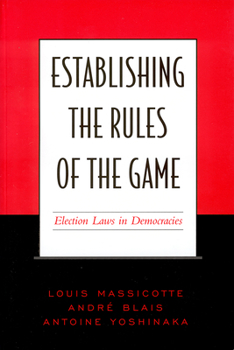Establishing the Rules of the Game: Election Laws in Democracies
Select Format
Select Condition 
Book Overview
There are an astonishing variety of election laws across contemporary democratic societies. In Establishing the Rules of the Game, Louis Massicotte, Andr? Blais, and Antoine Yoshinaka provide the first thorough examination of these laws. The study incorporates original data collected from more than sixty democracies around the world, and touches on oft-ignored, yet extremely important, aspects of election laws. The countries covered by the study include Argentina, Brazil, Canada, France, Japan, the Netherlands, the Philippines, Romania, and the United Kingdom. The authors focus on six dimensions of election laws: the right to vote, the right to be a candidate, the electoral register, the agency in charge of the election, the procedure for casting votes, and the procedure to sort out the winners and losers.
Massicotte, Blais, and Yoshinaka uncover underlying patterns, explaining why certain types of country tend to adopt a given sets of rules. In general, former colonies adopt the same laws as their former mother country. There is also a tendency for established democracies to be more inclusive than non-established ones. The authors point out sociological patterns and review normative and practical arguments for and against each set of rules, providing invaluable information for students of elections and democratic theory as well as election practicioners.





